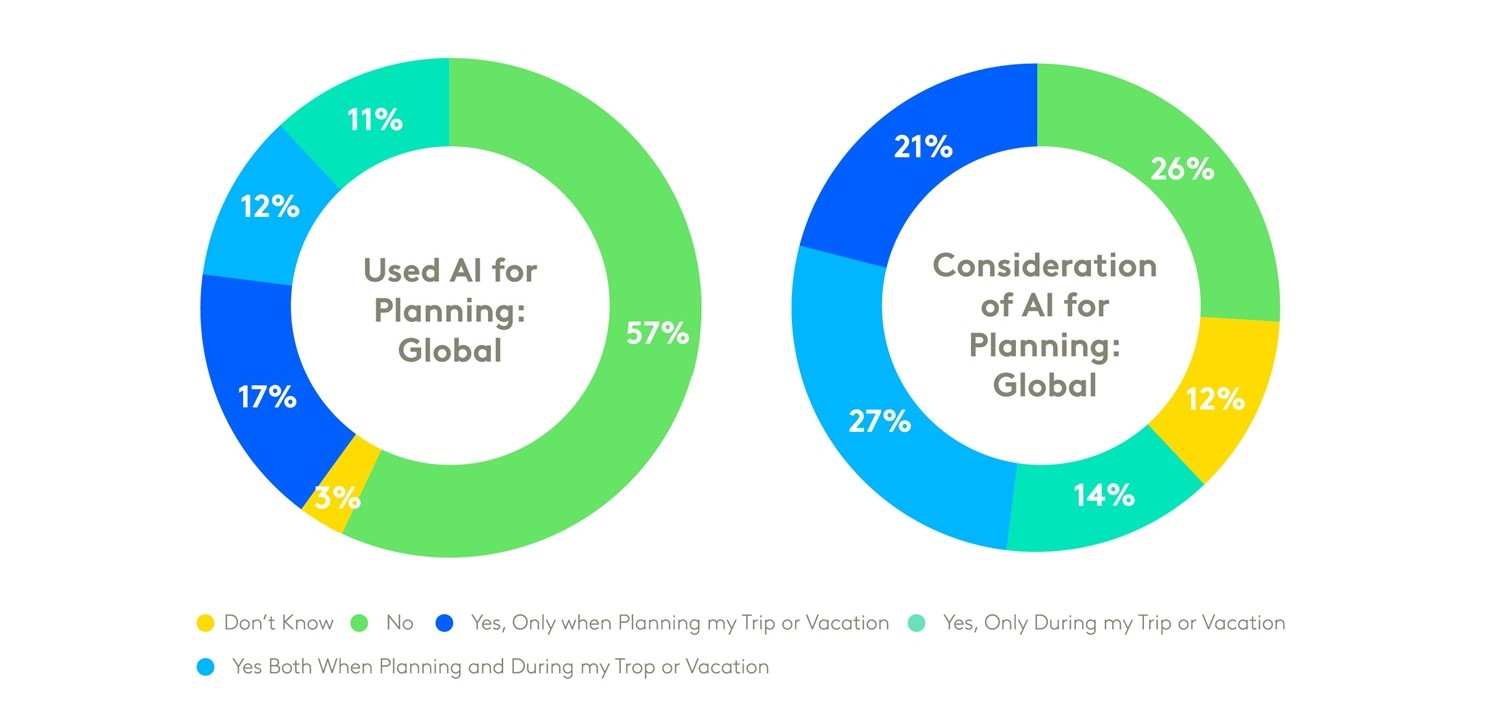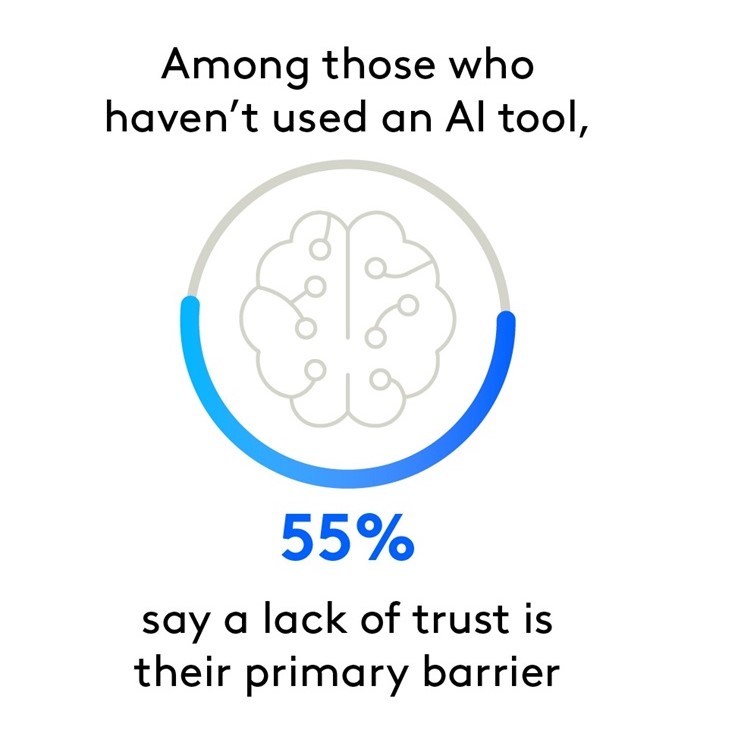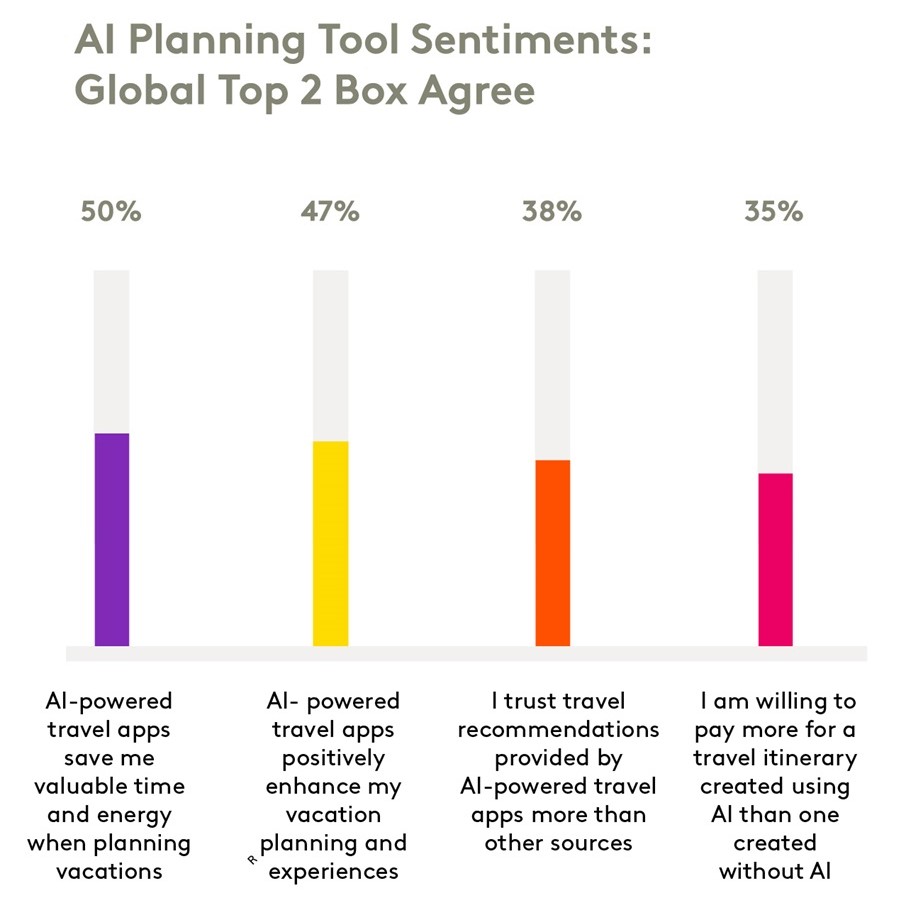From ChatGPT to the integration of chatbot features across software, artificial intelligence (AI) is everywhere. The travel and tourism industry has continually adapted to the integration of new technology. As it continues to advance and evolve, AI can be a game-changer across the industry - for both consumers and businesses alike.
From personalized itineraries to cost-saving strategies, AI tools are helping travelers streamline planning and enhance their overall experience. A closer look at recent trends reveals that while adoption is still growing, the potential for AI in tourism is undeniable.
In our latest report, Connecting with the Tourism Community, the Profiles team at Kantar team shared insights into how global audiences are traveling, and how they make decisions about where to go, and who to travel with. This research, spanning more than 10,000 global consumers across 10 countries, uncovered consumer trends, along with sentiments and motivations behind travel and tourism. Read more for a deep dive into the role AI plays in travel planning.
Growing Adoption of AI in Travel
Recent data shows that 40% of global travelers have already used AI-based tools to plan their trips, and 62% are open to using them in the future.

These tools are gaining traction for their ability to offer tailored experiences, suggesting activities, accommodations, and transportation options based on individual preferences.
Consumers can analyze thousands of travel deals, plan multiple itineraries, get hotel recommendations or localized information about different destinations – in seconds. Many platforms even provide real-time updates on pricing fluctuations, enabling users to book their trips at the most opportune times, making travel planning easier, and more accessible.
Personalized Itineraries: A Key Driver
One of the most appealing features of AI travel tools is their ability to create optimized, personalized itineraries. By analyzing user preferences, such as interests, budget, and travel style, AI can generate recommendations that align with a traveler’s unique needs. In fact, this capability ranked as the number one reason why consumers use AI for travel planning.

The improved ease of finding the “best deals” is the top reason consumers would consider using an AI tool when planning travel, followed closely by better access to advice on “accommodations, activities or transportation.”
Overcoming Barriers to AI Adoption
Despite the growing interest in AI tools, there are still barriers preventing widespread adoption. Trust remains a significant issue, with 55% of non-users citing a lack of trust as their primary reason for not using AI in travel planning.

To overcome this hurdle, consumers need to understand the transparency and reliability of these tools. Demonstrating how AI helps source and analyze data can help build consumer confidence and encourage first-time users to give AI a try.
The Future of AI in Travel
The future of AI in travel looks promising, with innovations expected to further enhance its capabilities. For instance, AI could soon integrate augmented reality (AR) to provide immersive previews of destinations or accommodations before booking. Travelers might also benefit from AI-powered language translation tools that make navigating foreign countries easier.
Despite relatively low adoption, 55% of consumers would or might consider paying for access to an AI-powered travel app or tool, signaling the value they place on these advanced features.

Half of all respondents agree that these tools and apps could help them save time and energy, making it a worthwhile investment for frequent travelers.

AI technology is poised to transform many industries, including the travel and tourism category with its ability to easily deliver personalized experiences, simplifying trip planning, and providing cost-effective solutions. While trust remains a challenge, growing adoption rates indicate that travelers are increasingly embracing this innovative approach.
Ready to learn more about how AI is reshaping the travel industry?
Download our latest report to dive deeper into these trends and discover actionable insights!
Get more answers
For more findings from this study, access the complete Connecting with the Tourism Community report. Find additional insights into how global consumers are traveling, the resources they use to plan trips and how they make decisions about where to go.
About this study
This research was conducted online among more than 10,000 consumers across ten global markets (including Australia, Brazil, China, France, Germany, Singapore, South Korea, UAE, UK, and the US) between 12-24 November 2024. All interviews were conducted as online self-completion and collected based on controlled quotas evenly distributed between generations and gender by country. Respondents were sourced from the Kantar Profiles Respondent Hub.

